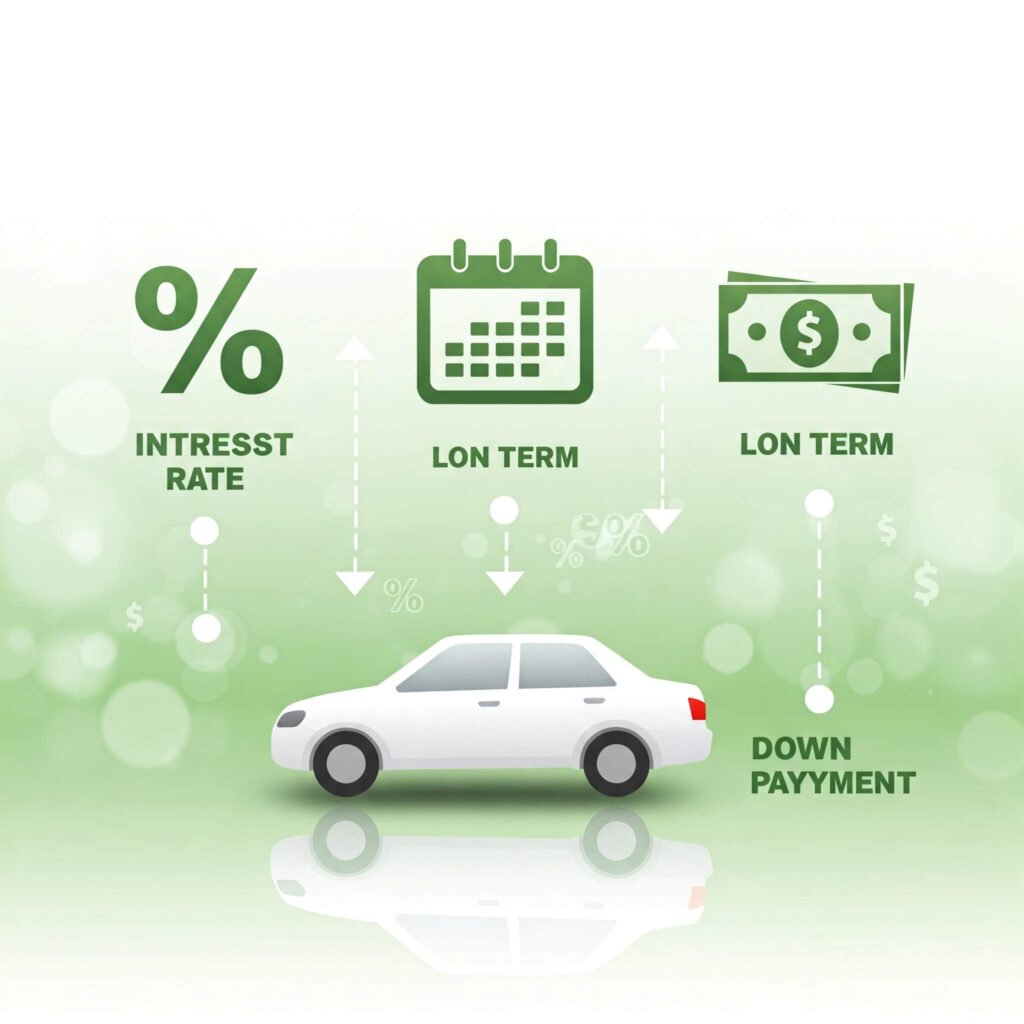Auto Loans 101 is some real stuff I wish I’d googled before I signed my life away for a used Honda last year. I’m chilling in my Chicago apartment, the L train rattling outside, my coffee table buried under takeout containers and a car loan statement that’s giving me the stink-eye. My cat, Taco, is sprawled on the couch, oblivious to my stress. Like, seriously? How did I mess this up so bad? Lemme take you through my wild, kinda embarrassing ride of figuring out auto loans 101 and what you gotta know before financing your car.
Why Auto Loans 101 Is Trickier Than It Looks
Okay, so auto loans 101 is basically about borrowing money to buy a car and paying it back with interest over time. Sounds chill, right? Wrong. I learned this when I walked into a dealership last spring, hyped to get a car, and walked out with a loan I barely understood. The APR was 7%, which I thought was fine ‘til I realized it meant I’d pay hundreds extra over five years. The Federal Reserve has a solid breakdown on how auto loans work (check it here).
I was too busy drooling over the car’s shiny rims to read the fine print. Big mistake. Auto loans 101 means knowing your interest rate, loan term, and monthly payments before you sign. I was clueless, sitting in the dealer’s office, the AC blasting and the salesman smirking like he knew I was in over my head.

How I Got Burned by My First Car Loan
Here’s the cringe part. I was 26, living paycheck to paycheck, and decided I needed a car to “feel free.” So, I went to a dealership in the suburbs, hyped up on coffee and bad ideas. I picked a used Civic, cool enough, but didn’t haggle or shop around for loans. Signed a 5-year loan with a 7% APR, thinking, “Eh, I’ll figure it out.” Spoiler: I didn’t. My monthly payments were $400, which ate up half my grocery budget.
I was so embarrassed when I told my buddy Sam over pizza last month. He was like, “Dude, you didn’t compare rates?” Nope. Auto loans 101 would’ve told me to check credit unions or banks for better deals. Bankrate has a great tool for comparing rates (here).
My (Sorta Failed) Plan to Master Auto Loans 101
So, I decided to get smart about auto loans 101. I was in my car, stuck in Chicago traffic, Googling “how to not suck at car loans” on my phone. The internet said to shop around, check your credit score, and negotiate. I tried calling my bank for a refinance, but I got nervous and hung up mid-call. Classic me. I also thought about paying extra on my loan to cut interest, but then I spent $50 on tacos instead. Whoops.
Here’s what actually kinda worked:
Pay extra when you can. Even $20 extra a month saves on interest over time.t a 5% interest rate over 60 months. Her monthly payment was about $377, and she paid $2,620 in interest over the loan term.
Check your credit score first. Mine was 650, not great, so I knew I’d get higher rates. Experian’s got a free score check (here).
Shop around for loans. Credit unions often have lower rates than dealers. I wish I’d known this sooner.
Negotiate the car price. I didn’t, and I overpaid. Consumer Reports has tips on haggling (check it).
Outbound Link: For a deeper dive into loan calculations, check out Bankrate’s Auto Loan Calculator.

The Emotional Rollercoaster of Financing a Car
Real talk: figuring out auto loans 101 makes me feel like I’m failing adulting 101. Every car payment feels like a reminder I could’ve done better. I’m sitting here, the radiator humming like it’s judging me, wondering why I didn’t shop around. I used to think I was “good” with money ‘cause I paid my bills, but this loan showed me I’m a mess. It’s humbling, and not the fun kind.
I confessed this to my coworker Jess over coffee last week, and I was, like, red-faced admitting I got a bad deal. She laughed and said she did the same thing with her first car. That made me feel less dumb. Auto loans 101 isn’t just numbers—it’s about not letting pride stop you from learning.
My Top Tips for Nailing Auto Loans 101
Here’s the tea, from one screw-up to another:
- Know your credit score. It sets your loan terms. Check it for free on Credit Karma (here).
- Compare loan offers. Don’t just take the dealer’s deal. Credit unions or banks might save you thousands.
- Haggle the car price. Dealers expect it, so don’t be shy. I was, and I regret it.
- Read the contract. Don’t sign ‘til you get the APR and terms. NerdWallet’s got a guide on this (check it).
Outbound Link: Learn how credit scores impact loans at Experian’s Credit Guide.
Outbound Link: Compare current auto loan rates at NerdWallet.

Wrapping Up This Car Loan Chaos
So, yeah, auto loans 101 has been a wild ride for me. I’m still not a finance guru—my apartment’s a mess, and Taco’s probably sick of my stress sighs. But I’m learning to shop smarter, check rates, and not sign shady deals. If I can figure this out, you can too. Pull up your credit score, maybe over a snack, and start comparing loans. You got this.auto loan tips, you’re ready to hit the road without breaking the bank.



